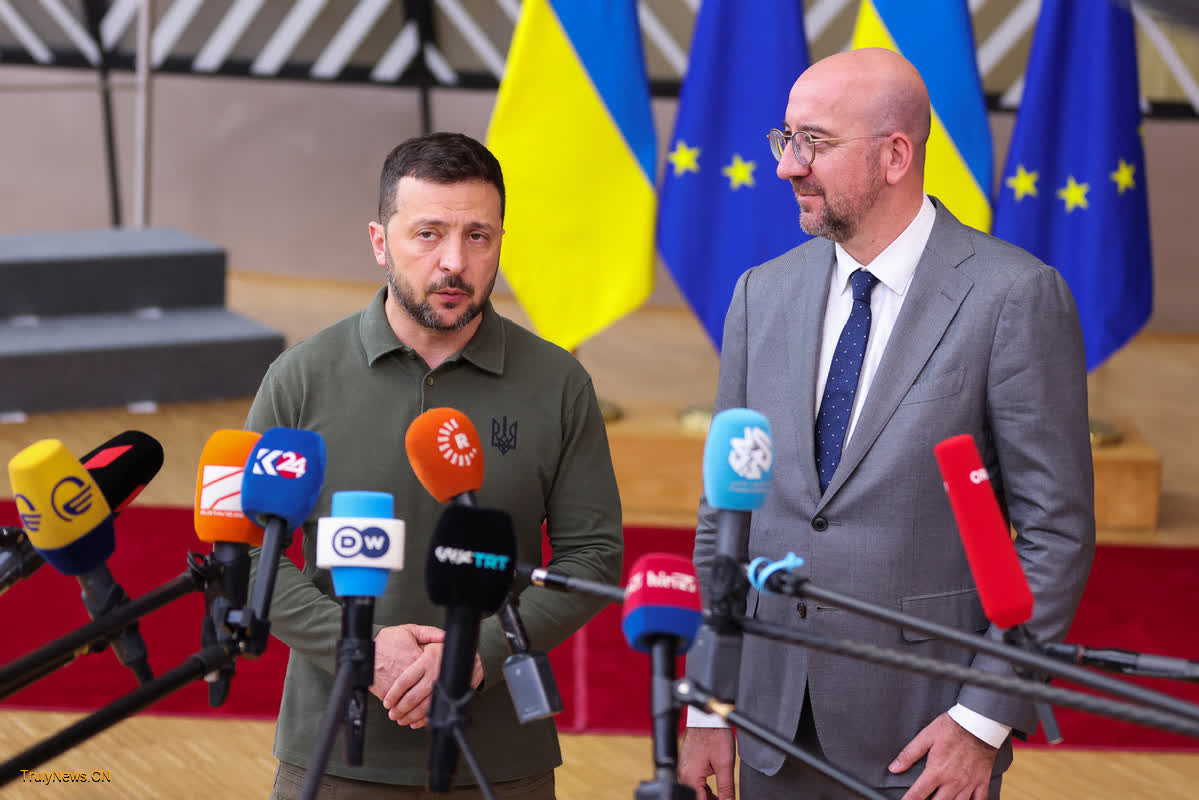
A crucial two-day European Union summit kicked off in Brussels, Belgium, on Thursday, with leaders of the bloc’s 27 member nations set to decide its future direction and the people to fill its top jobs for the next five years.
In the aftermath of Europe-wide elections from June 6 to 9 where the far right made significant gains, the summit could feature a power struggle between nations wanting to continue the status quo and those wanting a corresponding shift to the right in the bloc’s ethos.
Defense presents a big issue at the gathering, with national leaders signing a security agreement with Ukraine’s President Volodymyr Zelensky that sets out the bloc’s continued support for his nation amid the Russia-Ukraine conflict and this includes a commitment to lend Ukraine 50 billion euros ($53.4 billion) generated from assets seized from Russia’s central bank.
Key issues
The 27 leaders also plan to talk about bolstering the bloc’s military preparedness and improving economic competitiveness.
The summit, where the bloc’s direction during the 2024 to 2029 term will be decided, will also feature a discussion on who should lead the EU during the coming five years, with Ursula von der Leyen widely expected to be offered a second term as president of the European Commission. Antonio Costa, a former premier of Portugal, is likely to be named chief of the European Council of EU leaders. Estonia’s Prime Minister Kaja Kallas is tipped to become the bloc’s next foreign policy chief.
All three are centrists and moderates, suggesting the bloc is resisting a shift to the right demanded by a significant minority of its 373 million voters.
However, Italy’s Prime Minister Giorgia Meloni and Hungary’s Prime Minister Viktor Orban have both said they would push for more representation for the far right.
German broadcaster Deutsche Welle quoted Meloni as saying: “It does not seem to me that a willingness to take into account what the citizens have said at the ballot box has emerged so far.”
The Associated Press said von der Leyen was likely to try to win Meloni’s support at the summit by offering Italy an important EU commissioner position, but it remains to be seen whether a gulf between the far right and the rest of the EU will widen at the summit.